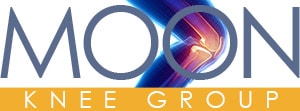About MOON Knee Group and ACL Research
A network of 19 physicians and seven leading health care institutions, the Multicenter Orthopaedic Outcomes Network (MOON) Knee Group conducts long-term studies of anterior cruciate ligament reconstruction (ACLR). The MOON Knee cohort strives to serve as a valuable benchmark for ACL researchers and practitioners nationally and internationally for comparing ACLR outcomes.
MOON Knee research is one of the world’s highest-profile and scientifically productive ACL registries with 66 peer-reviewed publications with thousands of citations. More than 20 MOON Knee publications have Relative Citation Ratios (RCR) in the top two percent of NIH-funded papers per NIH iCite. RCR measures scientific influence within a field. A Google search for MOON Knee research lists more than 15 million pages.
ACL Research Scope
There are more than 3,500 ACL reconstruction surgery cases in the MOON Knee study with more than 60 papers published in leading medical journals. It is the first and only research group to enroll and follow several thousand ACL surgeries, with more than 80 percent follow-up at two, six and 10 years.
MOON Knee’s collective and most notable work spans:
- ACL patient-reported outcomes
- Predictors of ACL graft failure
- Optimal graft choice for young athletes
- Incidence and predictors of subsequent ACL surgery
- Incidence and predictors of early post-traumatic osteoarthritis joint space narrowing
MOON Knee Group research has changed the treatment of ACL injuries.
This research makes the MOON Knee Group one of the world’s leading resources on ACL injuries, reconstruction, rehabilitation and injury and re-injury prevention.
Improving ACL Reconstruction Results
Sustaining an ACL injury creates the possibility of lifetime compromise in physical function and increases the likelihood of developing early degenerative osteoarthritis in the knee.
Understanding the risk factors which predict better or worse outcomes is the next step in designing solutions to prevent or delay undesired outcomes.
In particular, the MOON Knee Group group aims to establish predictive models (best estimates of an individual patient’s outcome) to guide and improve patient-specific outcomes including return to sport, pain, function, graft failure and early arthritis.
Improving ACL Injury Treatment
Results from the group’s findings include:
- Better anterior cruciate ligament reconstruction surgical results for high school, college and competitive athletes
- Improved treatment options for meniscus and cartilage injuries
- Reducing the risk of ACL re-injury by 40 to 60 percent through graft choice, physical therapy and training techniques
MOON Knee Group History
The original concept for the Multicenter Orthopedic Outcomes Network (MOON) was developed in 1993 by the three senior authors (Doctors Richard Parker, Kurt Spindler and Jack Andrish). It was first known as the Vanderbilt Sports Medicine–Cleveland Clinic Foundation ACL Reconstruction Registry.
MOON’s unique structure enables it to answer previously unresolved orthopedic and sports medicine questions.
The initial efforts were successful. The group expanded to seven institutions and 17 surgeons when the official MOON Knee Group was established in 2002. Today there are seven institutions and 19 physicians in the MOON Knee Group.
Its members have joined together to study the short, intermediate and long-term (two, six and 10 years) outcomes of patients who undergo ACL reconstruction.
Methodology
Patients undergoing ACL reconstruction by one of the participating MOON knee surgeons between 2002 and 2008 were enrolled in this study. Consenting patients fill out a 13-page questionnaire prior to their ACL surgery.
The surgeons completed a detailed form on injuries to all knee structures and their treatment including the grafts used to replace the torn ACL.
All the patients followed the MOON evidence-based rehabilitation guidelines.
At two, six and 10 years after their ACL reconstruction, patients are asked to complete the same questionnaire again. About 80 percent participated in the follow-up at two, six and 10 years.
From their answers, researchers can understand how well patients are functioning post-surgery and rehabilitation, if they’ve undergone any additional knee surgeries and what they’re able to do at each time periods.
Funding from the National Institutes of Health
MOON Knee Group research has been funded by the National Institutes of Health (NIH) since 2006 with four grants.
How MOON Knee Long-Term ACL Research is Done
The MOON ACL study follows patients from just before their ACL surgery until 10 years after surgery. The purpose of the study is to better understand outcomes based on original treatment and injury.
Patients are asked to complete a questionnaire before surgery to document how and when their knee was injured, current activity level and how their knee functioned before surgery.
Patients are contacted at two, six and 10 years after surgery. They are asked about any further surgeries on either knee.
They complete a follow-up questionnaire by mail or email. The questionnaire documents their current activity level and how their knee currently functions. Once a follow-up questionnaire is completed, patients receive a small payment to thank them for their time. (Only patients with Social Security Numbers on file receive payments due to tax purposes.)
MOON Knee Study Participant?
If you are a study participant and have questions about the study, contact Brooke Turner at Vanderbilt University Medical Center at brooke.turner@vumc.org.
Was This Content Helpful?
Share via:

